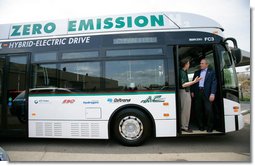Shell’s recent decision to permanently close its seven hydrogen refueling stations for passenger cars in California marks a significant shift in the alternative fuel landscape. Citing ‘supply complications and other external market factors,’ the company is now focusing on heavy-duty vehicles and electric vehicle charging infrastructure. This pivot underscores Shell’s broader commitment to decarbonizing light-duty transportation while adapting to evolving market dynamics.

Shell’s journey into hydrogen refueling in California has been riddled with numerous challenges and setbacks.
Shell’s venture into hydrogen refueling in California has faced many obstacles and changes in direction. Initially awarded a $40.6 million grant to build 48 new hydrogen filling stations, the company had high hopes for the state’s hydrogen future. However, last September, Shell informed Hydrogen Insight that it had ‘discontinued its plan to build and operate additional light-duty vehicle fueling stations in California,’ effectively abandoning the proposed expansion.
The warning signs were evident when Shell ‘temporarily’ shut down five of its stations without a confirmed reopening date. A Shell spokesman elaborated, stating, ‘Shell discontinued the build out of its light-duty hydrogen station network in California in 2023, and after temporarily closing five of its seven light-duty stations, decided to permanently close its light-duty station network in California in early 2024. This decision was influenced by several market factors.’
These market factors likely include the low demand for hydrogen-powered vehicles in California. Despite being one of the few growth markets for this vehicle segment, only 3,143 hydrogen-powered cars were registered in 2023, a number dwarfed by the registration of battery-electric vehicles, which accounted for nearly 1% of the total.
The closure of Shell’s hydrogen stations in California happened many times.
The closure of Shell’s hydrogen stations in California is not an isolated incident. In 2022, the company also shut down all three of its hydrogen filling stations in the UK, citing a strategic shift towards heavy-duty trucks—a market the existing sites could not serve.
Adding to the complexity of the hydrogen refueling landscape, Shell’s equipment supplier, Nel of Norway, is embroiled in a lawsuit with industrial gas company Iwatani. The suit alleges significant defects in Nel’s H2Station range, which could have contributed to the operational challenges faced by Shell’s hydrogen network.
The implications of Shell’s decision extend beyond the company’s portfolio. The hydrogen fuel cell partnership in California, which has seen hydrogen prices soar to $36 per kg, is now under pressure to maintain a viable refueling network for the state’s fuel cell vehicle owners. With Shell’s exit, the future of light-duty hydrogen refueling in California hangs in the balance, leaving industry observers and consumers pondering the viability of hydrogen as a widespread alternative fuel.
As Shell redirects its focus to heavy-duty mobility and electric vehicle charging, the company continues to operate three hydrogen filling stations for heavy-duty vehicles in California. This strategic pivot reflects a broader industry trend of targeting hard-to-abate sectors and regions with competitive advantages, as the energy landscape evolves in response to market demands and technological advancements.

The recent closure of Shell’s hydrogen refueling stations for passenger cars in California highlights significant challenges in developing alternative fuel infrastructures. This development not only reflects the complexities involved in transitioning to new energy sources but also emphasizes the crucial role of market demand in shaping the future of transportation energy. As stakeholders navigate this evolving landscape, the viability of alternative fuels will increasingly depend on consumer acceptance and the establishment of robust support networks.
Related posts:
Shell permanently closes all of its hydrogen refuelling stations for cars in California
Shell Shuts Down Its US Hydrogen Filling Stations
Shell permanently closes all of its hydrogen refuelling stations for cars in California




